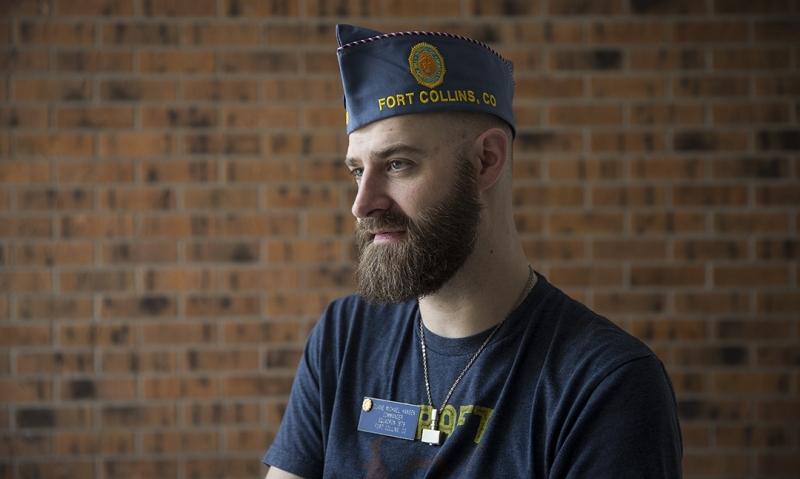
SAL members honor their forefathers with the work they do today.
Duane Hansen wasn’t able to serve his country the way his grandfather did. But he found his place as a member of the Sons of The American Legion.
“Some people like myself, we just aren’t able to serve in that capacity, but there’s still great purpose in being able to serve those who have served,” said Hansen, commander of SAL Squadron 1879 in Fort Collins, Colo. “There’s still great purpose in being able to serve your community. And there’s a lot of different lessons that you can learn from our organization in particular.”
In Hansen’s estimation, one of the SAL’s strengths is being able to provide avenues for young people to find their way.
“You hear a lot about youth today, supposedly they’re lazy, they’re too busy with their social media and their online gaming, etc. But we’re seeing a lot of activism, we’re seeing a lot of people on either side of the aisle, no matter what their ideologies are, they’re getting involved, they’re letting their voices be heard, and that’s something for us to be able to help channel,” Hansen said.
Jonathan Leatherman Clason sees that firsthand each summer at Oklahoma Boys State, where he’s a senior counselor. While his active service in the Air Force allows him to be a member of The American Legion, Clason chose to wear his SAL cap during Boys State week as a tribute to his grandfather, a combat medic in World War II.
“I got to carry on the work of the military that he started out and then my father also did … the legacy carries on with me,” Clason said.
There are over 369,000 members of the SAL, dedicated to serving veterans and their families.
“We try to think of the veteran not just as an individual but as an entire unit, because there’s also a spouse, or kids, brothers, sisters, mothers, fathers, it’s a familial unit. So we try to address it not just on the individual but also on the family as a whole,” Hansen said.
There is also community outreach. With Hansen’s squadron a part of Post 1879, which was formed on the campus of Colorado State University, that outreach includes students who might not be completely aware of what veterans need and can provide.
“I advocated for a lot of veterans’ issues on CSU campus, and it was really interesting to be able to be that kind of voice who hadn’t served, but knows (veterans) well enough that when I brought it to students that they themselves really hadn’t had too much exposure to that community, helping them kind of understand what was sort of a generalization or a stereotype and what was more like, here’s a realistic perspective on what a veteran, especially a student veteran, is like. And it’s funny because a lot of those students found out that the work ethic that comes from having been a veteran is something they all look up to,” Hansen said.
- Sons

